This Biguanide, the only one available in the US, works by suppressing hepatic gluconeogenesis and increasing peripheral sensitivity to insulin
What is Metformin?
This disease caused by a spirochete, is the most common tick-borne infection in the United States
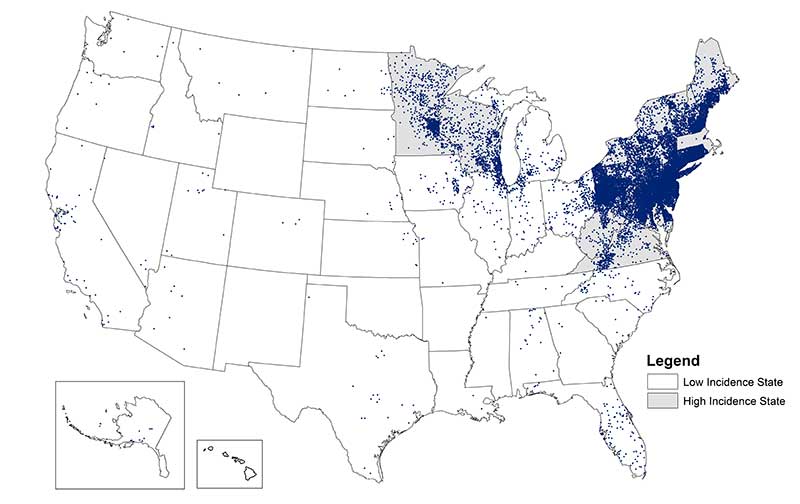
What is Lyme Disease?
Endothelial injury, Hypercoagulable state, and Abnormal blood flow are the three components of this triad
What is Virchow's Triad?

This velvety hyperpigmentation of the skin that usually occurs in intertriginous areas, has been associated with Obesity, Type 2 Diabetes, and even GI malignancies.

What is Acanthosis Nigricans?
This autoimmune disorder involves the lymphocytic infiltration of the thyroid gland and is the most common cause of hypothyroidism in the US
What is Hashimoto's thyroiditis?
(Chronic autoimmune thyroiditis)
Medicines in this class include canagliflozin, dapagliflozin, and empagliflozin. Adverse effects include dehydration, UTIs, yeast infections, and euglycemic DKA.
What are SGLT2 inhibitors?
(Sodium-glucose Cotransporter-2 inhibitors?)
Meglitinides are closely related to this class of drugs, which also work by stimulating the release of insulin from pancreatic beta cells
What are sulfonylureas?
Also known, as "Valley Fever", this fungal infection is endemic to the regions shown below:
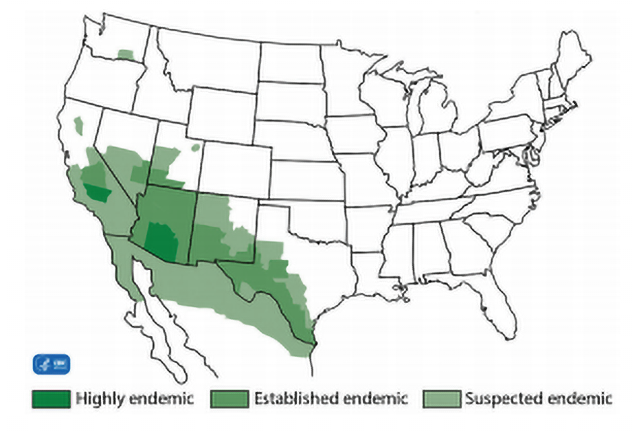
What is coccidioidomycosis?
A patient in cardiac tamponade may present with Beck's Triad, which has these three components:
- Hypotension
- Jugular venous distention (JVD)
- Muffled heart sounds
This condition that affects areas rich in sebaceous glands (scalp, face, and trunk) may be associated with systemic disease.
(Extra credit: what diseases?)
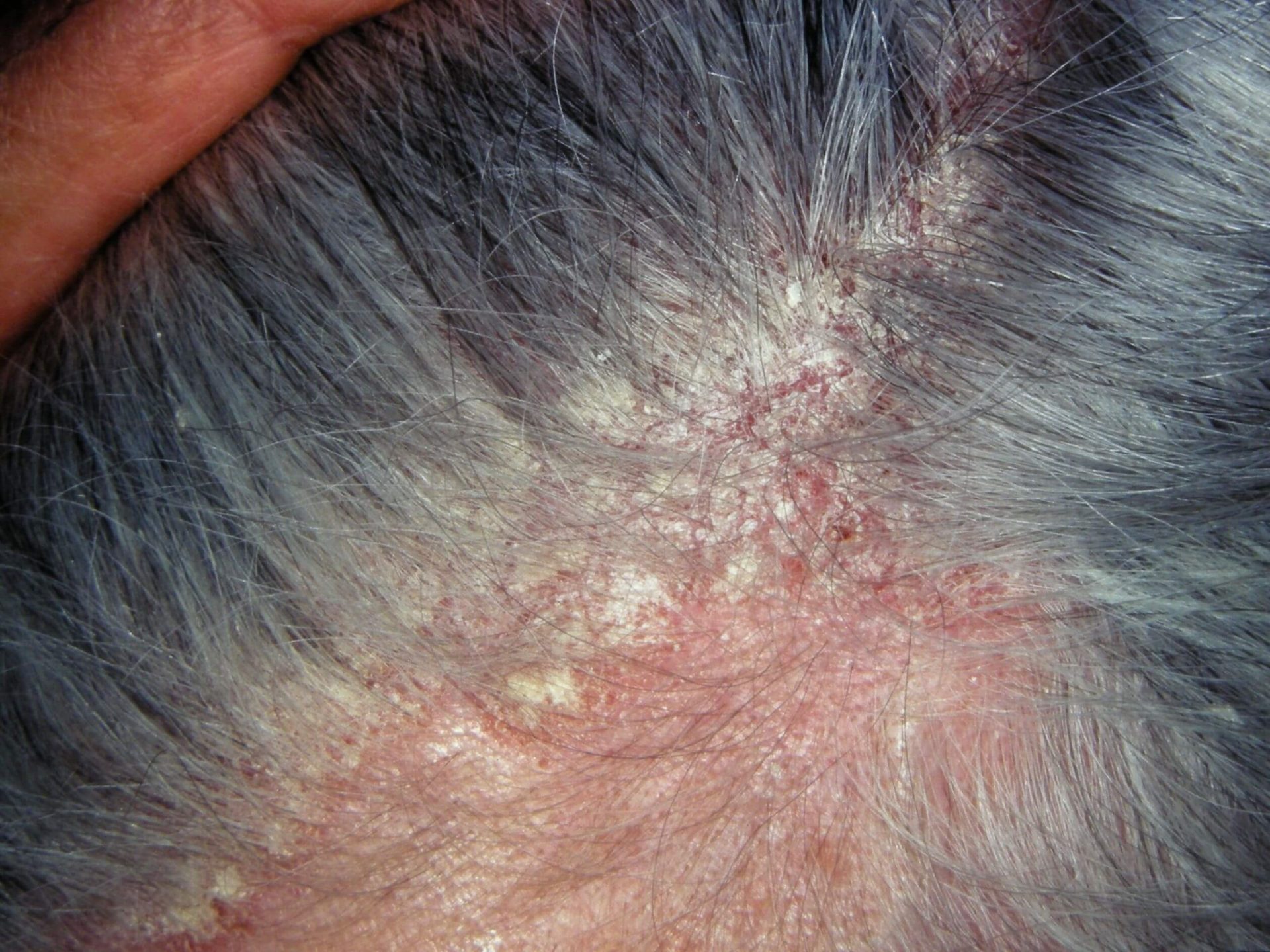

What is Seborrheic Dermatitis?
What are HIV and Parkinson's Disease?
The name for this cardiomyopathy is taken from the Japanese name for an octopus trap, which has a shape that is similar to the apical ballooning seen on the following LV gram: 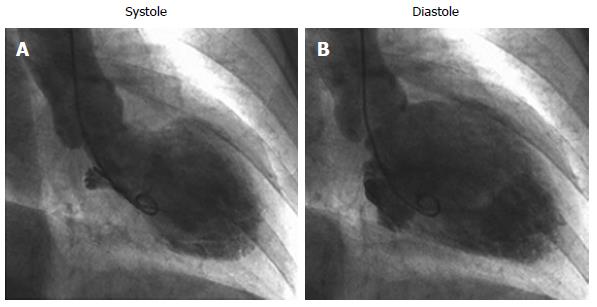
What is Takotsubo Cardiomyopathy?
This tickborne illness causes fever, headache, and a petechial rash, and is the most common rickettsial infection in the US

What is Rocky Mountain spotted fever (RMSF)?
Of Semagiltide, Glimepiride, and Insulin, its the one that is credited with helping patients lose weight
What is Semaglitide?
Complications from this disease include cardiomyopathy, megaesophagus and megacolon
(Extra credit: What is the name of the causative parasite?)
What is Chagas Disease?
(What is Trypanosoma cruzi?)
Cholangitis classically presents with Charcot's triad, which consists of the following three components
1. Fever
2. RUQ pain
3. Jaundice
These Pruritic, Purple, Polygonal, Papules or Plaques, may be associated with Hepatitis C
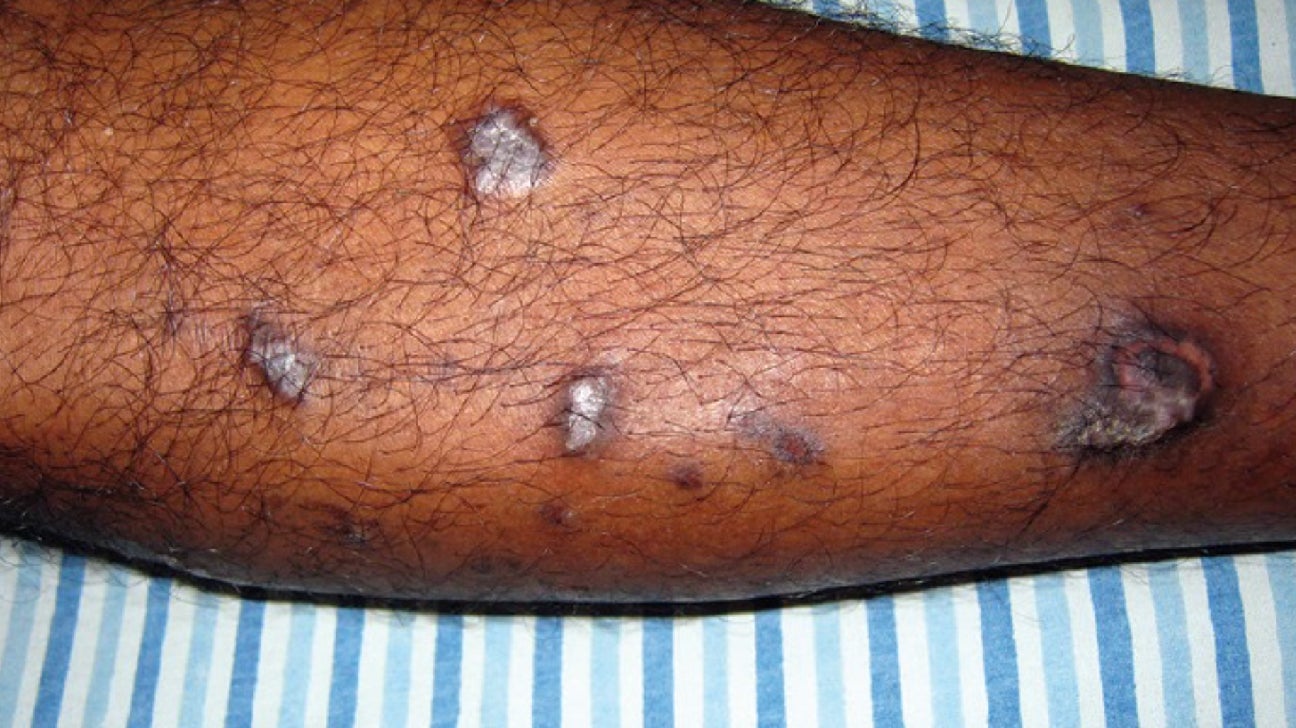
What is Lichen Planus?
This idiopathic febrile illness primarily affects children younger than 5 years of age and is associated with cervical lymphadenopathy and mucous membrane findings such as injected or fissured lips, injected pharynx, or strawberry tongue.
What is Kawasaki disease?
Sitagliptin (Januvia), Saxagliptin (Onglyza), and Linagliptin (Tradjenta) belong to this class of drugs used to treat Type 2 Diabetes
What are dipeptidyl peptidase 4 (DPP-4) inhibitors?
Of Sitagliptin, Dulaglutide, and Dapagliflozin, its the medication shown to be beneficial in heart failure with reduced ejection fraction (HFrEF)
What is Dapagliflozin?
This parasite that causes bladder granulomas and hematuria, while present in Egypt, has a much wider distribution as shown below:

What is Schistosoma haematobium?
These 3 serious signs, seen in Cushing's triad, may alert a clinician that a patient has increased ICP, and in our case, needs to be transferred to an outside hospital.
1. Hypertension
2. Bradycardia
3. Irregular respirations
The shawl sign, Grotton Papules, and Heliotrope rash are classic signs of this rheumatologic condition.
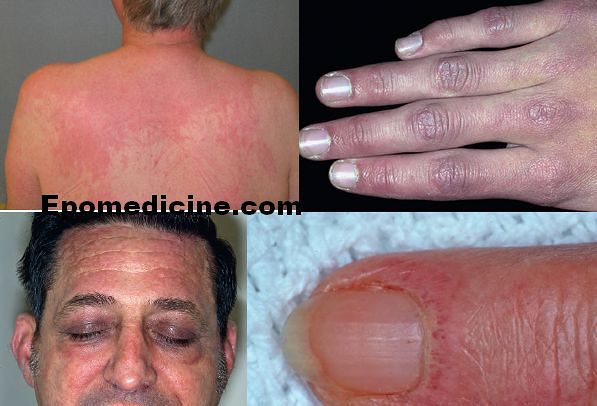
What is Dermatomyositis?
This large-vessel vasculitis affects women in 80 - 90% of cases, and is more prevalent in Asia
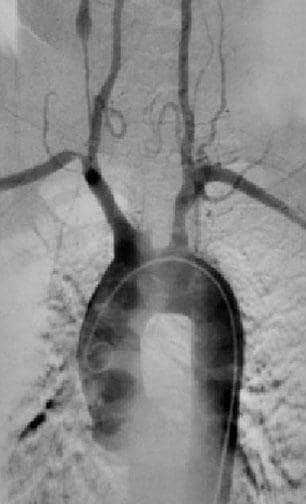
What is Takayasu arteritis?
These lesions area associated with severe hypertriglyceridemia, and can happen to patients with uncontrolled diabetes

What are eruptive xanthomas?
Exenatide belongs to this category of diabetes medications
What are GLP-1 agonists (incretin mimetics)
While many cases are asymptomatic, this tick-borne illness can cause a malaria-like syndrome with hemolytic anemia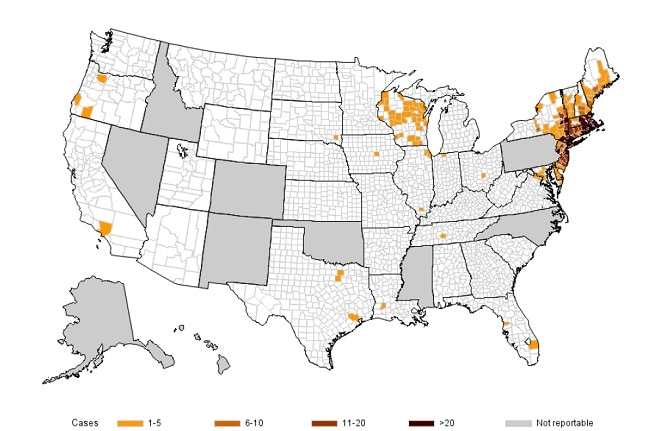
What is Babesiosis?
The female athlete triad consists of the following, which should not be missed on your patients that come in for school physicals!
1. Eating Disorder,
2. Amenorrhea
3. Osteoporosis
Cutaneous sarcoidosis may take this form, characterized by bluish-red or violaceous nodules and plaques over the nose, cheeks and ears


What is Lupus pernio?
This rare autosomal recessive disorder is characterized by easy bruising, oculocutaneous albinism and recurrent pyogenic infections.
What is Chediak Higashi syndrome?
While not eponymously named, hemolytic uremic syndrome (HUS) presents with the following triad:
1. Microangiopathic hemolytic anemia
2. Thrombocytopenia
3. Acute kidney injury
Acarbose works by inhibiting this enzyme found in the brush border of the small intestine
What is alpha glucosidase?
These bacteria are spread to people primarily through the bite of infected ticks including the lone star tick. On test questions, it tends to occur in the Ozarks region between AR and MO. Geographical distribution is shown below:

What is Ehrlichia?
(E. chaffeensis, E. ewingii, or E. muris eauclairensis)
The combination of asthma, nasal polyps, and aspirin allergy are known as this triad
What is Samter’s Triad?
This sign refers to the explosive onset of multiple seborrheic keratoses that may be associated with an internal malignancy


What is the sign of Leser-Trélat?
From the Japanese for “puff of smoke", this rare disease causes narrowing of the large intracranial arteries which gives rise to tiny collaterals vessels that have a tangled appearance on cerebral angiography:

What is Moyamoya disease ?
This condition causes severe neurological symptoms such as ataxia, tremor, sensory disturbances (glove and stocking type), dysarthria, loss of peripheral vision, and auditory disturbances. It is caused by the consumption of fish and shellfish contaminated with bioaccumulated organic methylmercury.
What is Minamata disease?